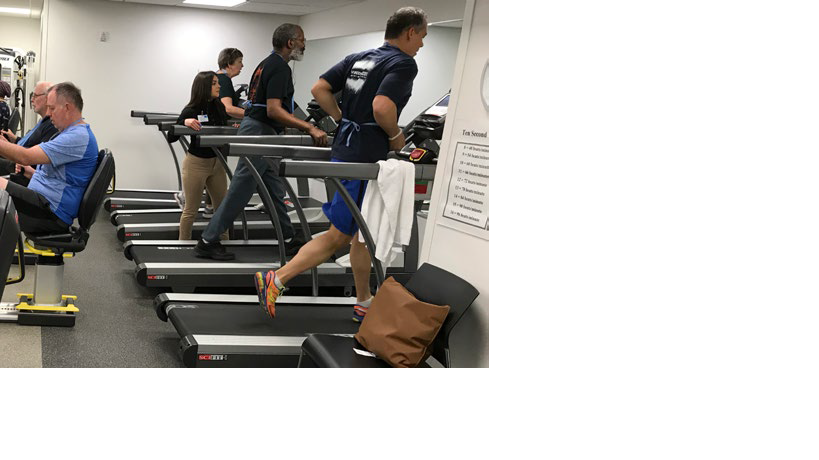CARDIAC REHABILITATION
Cardiac Rehabilitation When you follow up with your cardiologist, they may recommend cardiac rehabilitation. You will focus on exercise, physical therapy, and adopting healthier lifestyle habits.
Heart Failure
Heart failure is a condition in which the heart muscle has become weaker or stiffer than normal. This normally occurs gradually over a period of time when you have mitral regurgitation.


Monitoring for Heart Failure
You need to continue to monitor for symptoms of heart failure. If you feel you have any of these symptoms, you should call your physician immediately or go to the closest emergency department (ED):
• Increasing shortness of breath
• Cough or congestion
• Swelling in your legs
• Increasing weight (weight gain of 2-3 pounds or more in one day, or five or more pounds in one week)
• Chest pain
• Dizziness
• Palpitations
• Feeling more tired or lack of energy
• Difficulty sleeping and restlessness
• Loss of appetite or nausea.
What Can I Do About Heart Failure?
• Watch for worsening signs and symptoms (shortness of breath/fatigue)
• Weigh yourself daily
• Follow your recommended diet (low-sodium diet)
• Take medications as prescribed
• Keep active and follow your healthcare provider’s recommendations on exercise
• Call your healthcare provider with any change in your health Care for the Procedure Site
• Carefully inspect the site daily, being sure to first wash your hands.
• Do not leave the bandage dressing on the site for more than 24 hours.
• Once you are discharged, you may take a shower and softly wash the site with plain soap and water, but do not take a bath, soak in water, or swim for two weeks after the procedure.
• Keep the site clean and dry. Do not apply lotions, powders, or ointments.
Access site (transfemoral):There may be some bruising of the access site, which is expected and normal. After surgery, the area will be tender to touch. You may notice a small lump in the groin if the doctors used this site to place the valve. This will dissolve on its own in about 4-6 weeks.


Immediately call your doctor or go to the closest emergency room if you notice:
• Bleeding at the site that does not resolve after applying pressure for five minutes.
• Discharge or drainage at the site.
• Unusual or excessive swelling, pain, or redness.
• A temperature greater than 101 degrees.
Activity Once you are discharged, it is okay to return to your normal daily activities with the following precautions:
• Avoid heavy lifting (>5 pounds), excessive bending, stretching, pushing, or pulling for two weeks after your procedure.
• It’s okay to climb stairs, but take your time, go slow, and pause to rest if you feel tired.
• You may drive after five days.
• Avoid sexual activity until your follow-up appointment with your cardiologist.
• Your cardiologist will recommend a time frame for when you can return to work. Medications Your doctor may prescribe medications after your Mitraclip procedure. These will most likely include aspirin and Plavix, and you may also be prescribed a blood thinner (anticoagulant). All medications have some side effects; they range from mild to severe and from common to extremely rare. Your doctor will discuss possible side effects of the prescribed medications with you and will also advise you of any other precautions. He or she will also instruct you on whether to take the medications with meals, and your prescription should be clearly labeled with those instructions as well.
General guidelines for taking your medications:
• Never discontinue any medication unless your cardiologist instructs you to do so.
• Stopping some medications, especially aspirin and Plavix or other blood thinners, may result in serious medical problems including stroke, heart attack, and death.
• If you forget a dose, take it as soon as you remember. If it is almost time for your next dose, skip the one you missed and go back to the regular schedule. Do not take a double dose.
• If your medication is in tablet form, do not split, crush, or chew it. Swallow the tablet whole. If it is in capsule form, do not open it and sprinkle the contents on food. Swallow the capsule whole. If you have any questions or concerns, or any medication side effects develop, call your cardiologist.
